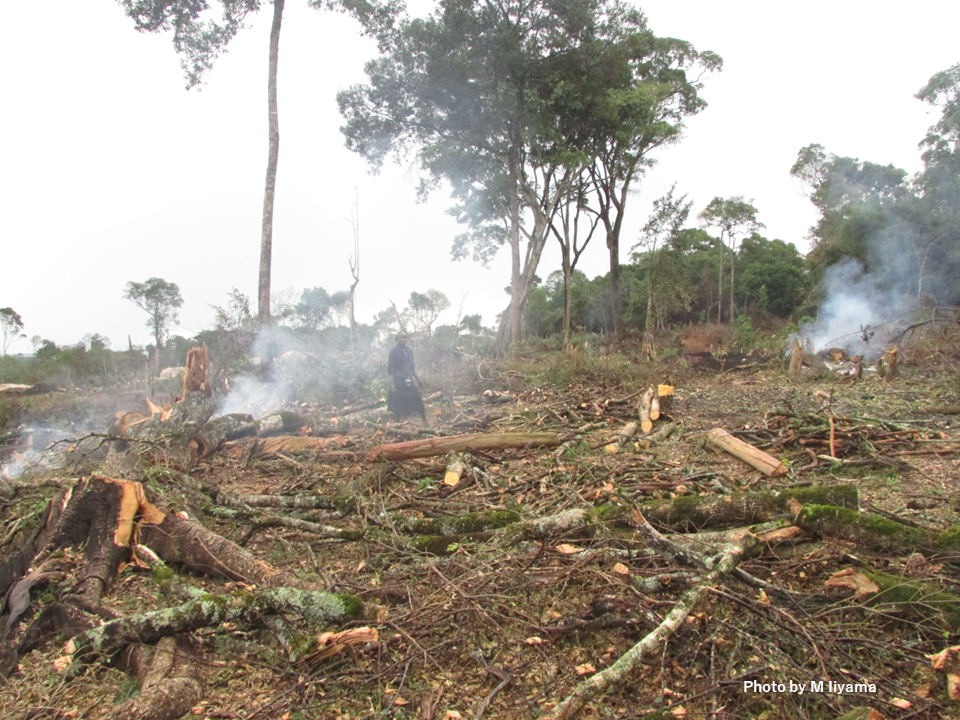Pick Up
810. Global Deforestation in 2022

810. Global Deforestation in 2022
The world's forests have played an important role in controlling the Earth's climate and environment through their ability to absorb and store carbon. However, deforestation and forest degradation caused by human economic activities are increasing, and there is concern that forest dysfunction could cause disturbances to the entire Earth system. Against this background, efforts to halt deforestation and conserve forests have been discussed in recent years at international conferences and negotiations on climate change mitigation and biodiversity conservation. In this context, 145 countries, including Brazil, Indonesia and Malaysia, all of which have tropical forests, signed a commitment to halt deforestation and forest degradation by 2030 at COP26 in Glasgow in 2021. Despite this, the world as a whole appears to be losing forest cover.
On June 27, Global Forest Watch, operated by the World Resources Institute (WRI), reported that the pace of deforestation accelerated in 2022. Based on the report, 4.1 million hectares of tropical primary forest were lost in 2022, roughly the size of Switzerland and equivalent to the loss of 11 football fields of forest every minute, and this loss produced the same amount of greenhouse gas emissions as India's annual emissions.
According to the report, Brazil is responsible for 43% of the world's primary forest loss. Forest loss in the Brazilian Amazon, mainly due to deforestation, has been high since 2005, particularly in the western Amazon, where large-scale deforestation is underway and is likely linked to the expansion of cattle ranches along existing highways. In addition to the effects of carbon loss, there is concern that deforestation in the Brazilian Amazon could affect rainfall patterns in the region, eventually causing a tipping point where most of the ecosystem converts to savanna.
Record levels of tropical primary forest destruction have also been recorded in the Democratic Republic of Congo (DRC), where smallholders are expanding their farms and burning charcoal to meet the increasing food demands of a growing poor population, and in Ghana, where smallholders are expanding cocoa cultivation in areas adjacent to protected areas in the remaining primary forest. Thus, poverty and low agricultural productivity among smallholders are the main drivers of deforestation in Africa.
Bolivia has reported a rapid acceleration of tropical primary forest loss in recent years, ranking third behind Brazil and the Democratic Republic of the Congo in terms of primary forest area lost, and ahead of Indonesia. In addition to agribusiness such as soybean, maize and sorghum, and the expansion of cattle ranching, forest fires caused by drought and slash-and-burn agriculture are also contributing to deforestation.
In contrast, tropical forest loss in Indonesia has declined in recent years, reaching a record low in 2022. Tighter government regulations and corporate commitments to stop deforestation in industries such as palm oil appear to be paying off.
Global Forest Watch is concerned that while deforestation has slowed in Indonesia and Malaysia, other countries continue to maintain activities and policies that encourage accelerated deforestation, and calls for action beyond political commitments to conserve tropical forests for climate change mitigation and biodiversity conservation. Participants stressed the need for action beyond political commitments to mitigate climate change and conserve tropical forests for biodiversity conservation.
Contributor: IIYAMA Miyuki (Information Program)
